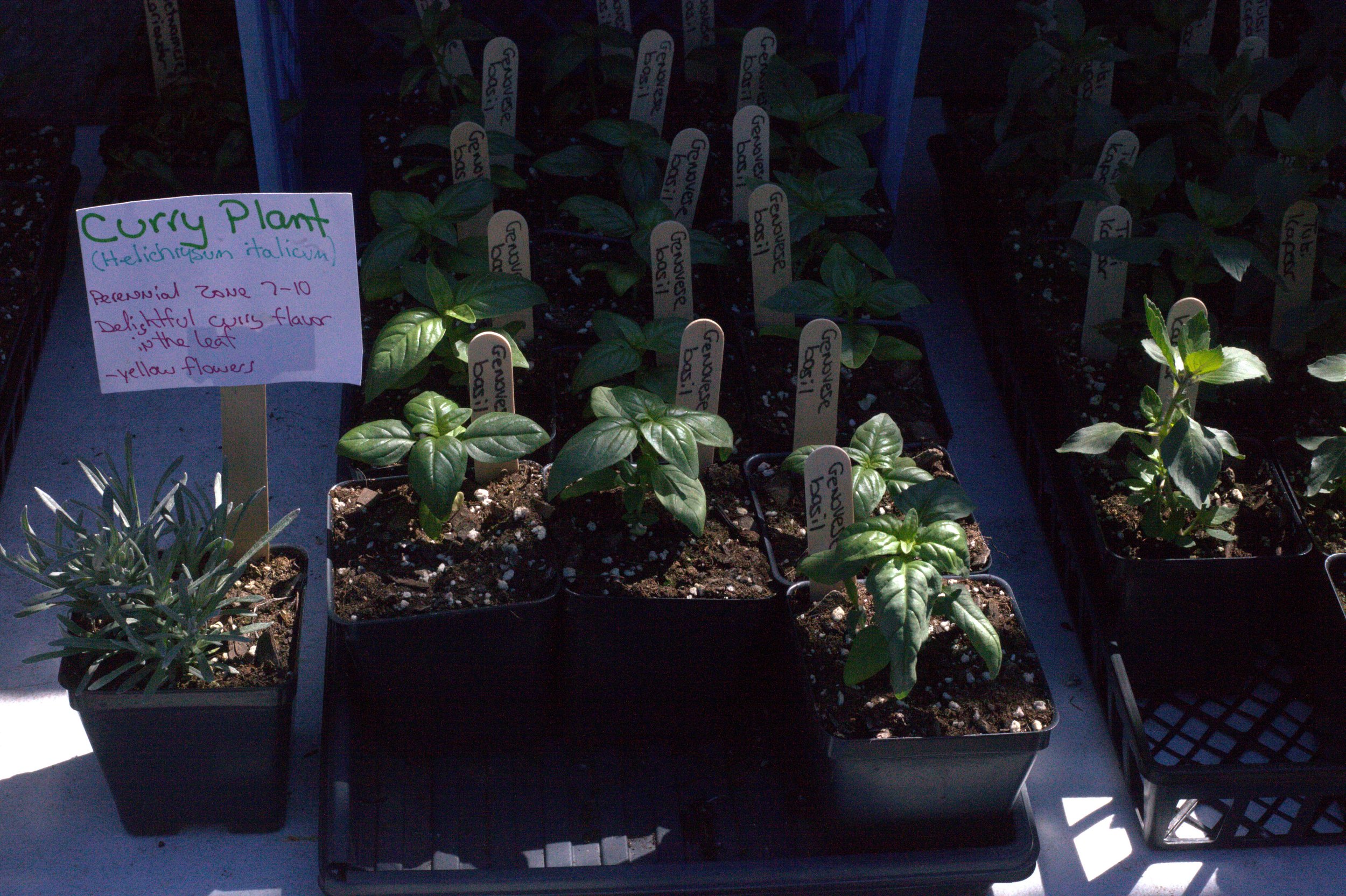Up With The Sun: Exploring North Asheville Tailgate Market
Alexandra Gore | April 11, 2024
As I wander around the North Asheville Tailgate Market, I am amazed at how many dedicated farmers spend their early Saturday mornings pulling their products together, always with a smile on their faces. A friend once told me that sleeping like a farmer is the most fulfilling thing someone can do — rise with the sun and go down with it. Unfortunately, I am a double major with insomnia, so that lifestyle is not for me. Still, something was present in him and the market alike: the yearning for community love.
College students are no strangers to sleeping in on a Saturday morning. Between classes, work and social life, the thought of rising early — can I call 10 a.m. early? — on a day off is a nightmare. But this month, I wanted to challenge myself by rising with the sun and immersing myself in an area of community that is still uncharted for me: farmers markets.
Asheville, North Carolina (N.C.), is home to a handful of Saturday markets that sell local goods, ranging from fresh produce to handmade jewelry. The most priceless commodity of all is the beautiful conversations I have with the vendors. My extroverted heart drives me towards their stories, and my journalism mind urges me to publish them.
With that being said, welcome to Up With The Sun, a column that explores various Asheville markets and provides a home for its vendors’ stories to live.
Hominy Farm is a woodfired sourdough business based in Candler specializing in Lebanese recipes. Sydney and Eli, the owners, have been hopping around various markets for six years. They are not your average bread company—their delicacies include flatbreads, manoushe and spinach pies.
“My personal favorite is probably the spinach pies,” Sydney said. They are made with locally grown spinach, which is just naturally delicious. Then we add some local molasses, a little bit of onions and some sumac — it has a sweet, savory flavor.”
Laid across their booth sat every kind of bread one could dream of, baked and ready to eat. I would consider it the best snack to munch on while exploring the market — you may just come back for more.
Upon entering the market, my eye was immediately drawn to a table with rows upon rows of various houseplants and garden herbs. From gollum jades to strawberry mint, Hogback Ridge Herb Farm offers something for every plant parent.
At some point in the 25 years that they’ve been operating, the farm’s vegetable patch transformed into an herb garden. Julie, a proud member of the family-owned business, describes how representing the farm at markets has brought her closer to the community.
“I like the market just because Asheville is so vibrant, and people really appreciate coming,” Julie said. “And knowing the person who grows their food or their plants, I think it's just a really nice community. And people look forward to it every Saturday, and they hang out here, and they know each other.”
Be sure to clear shelf space before you stop by Hogback Ridge Herb Farm’s stand because you are bound to leave with an armful of greenery.
Look around the Warren Wilson College (WWC) campus, and you are bound to spot at least one local food sticker.
Behind “Thousands of Miles Fresher!” is the Appalachian Sustainable Agriculture Project (ASAP), whose primary mission is to help local farms thrive, link farmers to markets and supporters and build healthy communities through connections to local food in Asheville and the wider community. Although she has only participated in markets a handful of times, Rei was excited to talk about how ASAP works to help the community.
“We have three programs, essentially,” Rei said. “One is a local food campaign, and that program essentially is directed to support farms. They support farms in many, many ways — one of them is putting a local food guide out, and farms can come to us and get free consultations for any information that they need or resources we can connect them to. We also have a Farm to School Growing Minds program, where some of the members of our team work to get local food into cafeterias and work to expose kids to local food. We also have a Produce Prescription program.”
WWC’s farm can be found on ASAP’s local food guide, and the two work together often to bring locally grown food to campus. The food guide also includes delicious recipes, which taste ten times better with food from the market, guaranteed.
A misconception I often hear about farmers markets is that they are pricey and out of budget for most college students. I believed this for years until I took the time to explore one; the prices are the same as grocery stores, if not less than. Not only are you benefiting from the natural products, but your money goes far beyond the businesses you buy from – they reach the local community. If you cannot afford to spend at the market, the smiles you will receive and the connections you will make do not cost a single penny, and they may even make you feel more prosperous.







